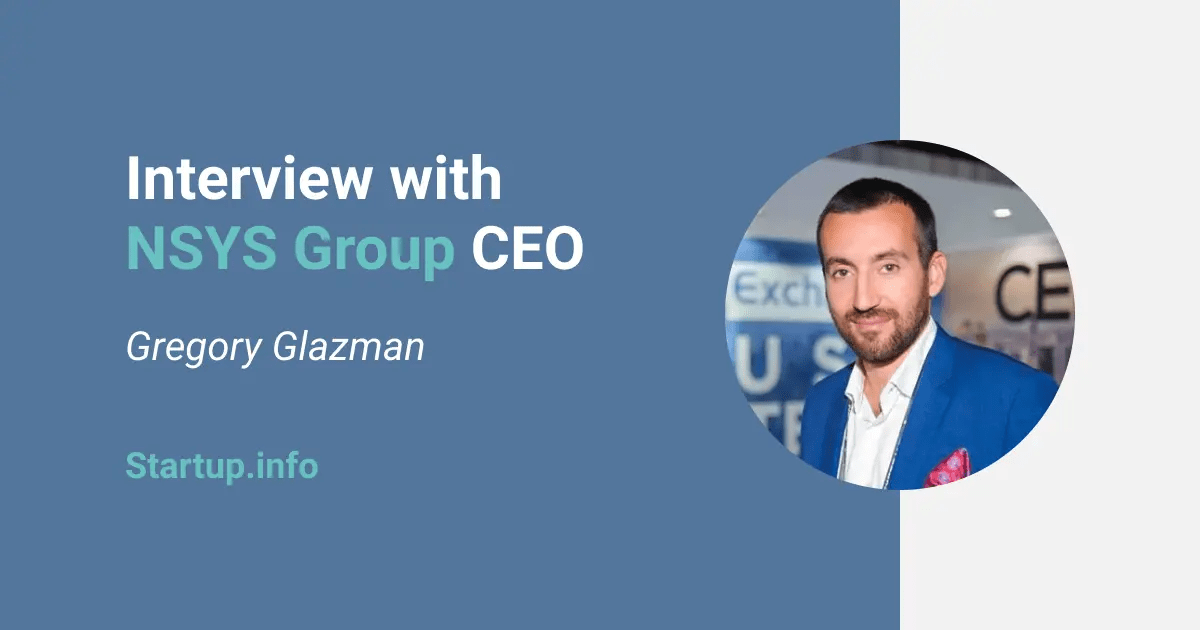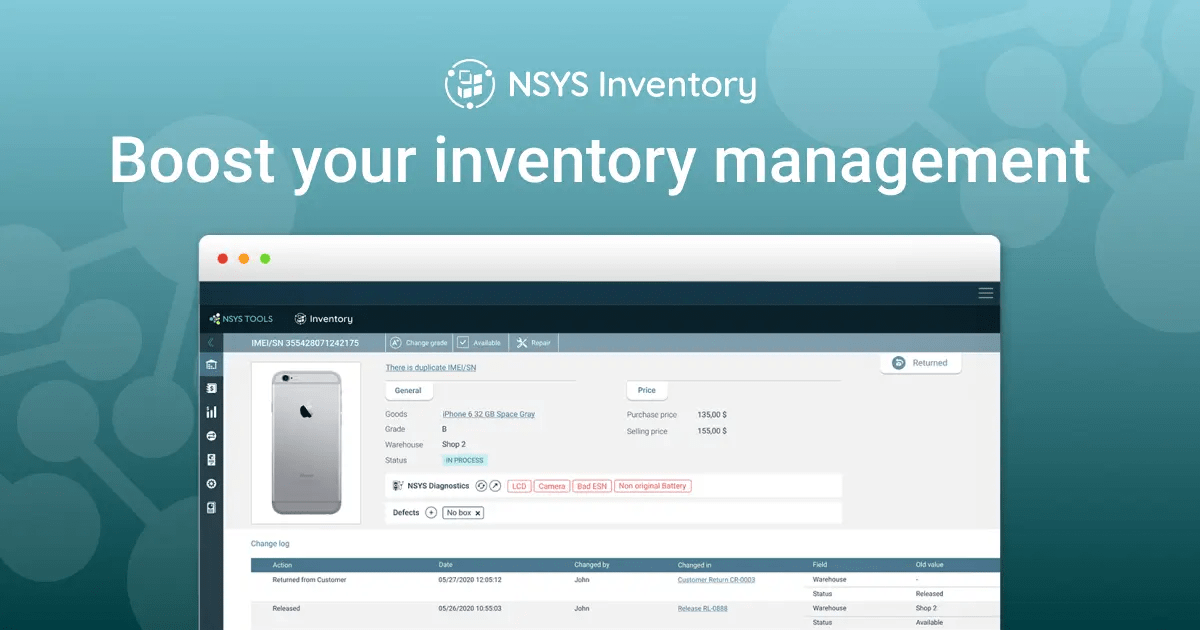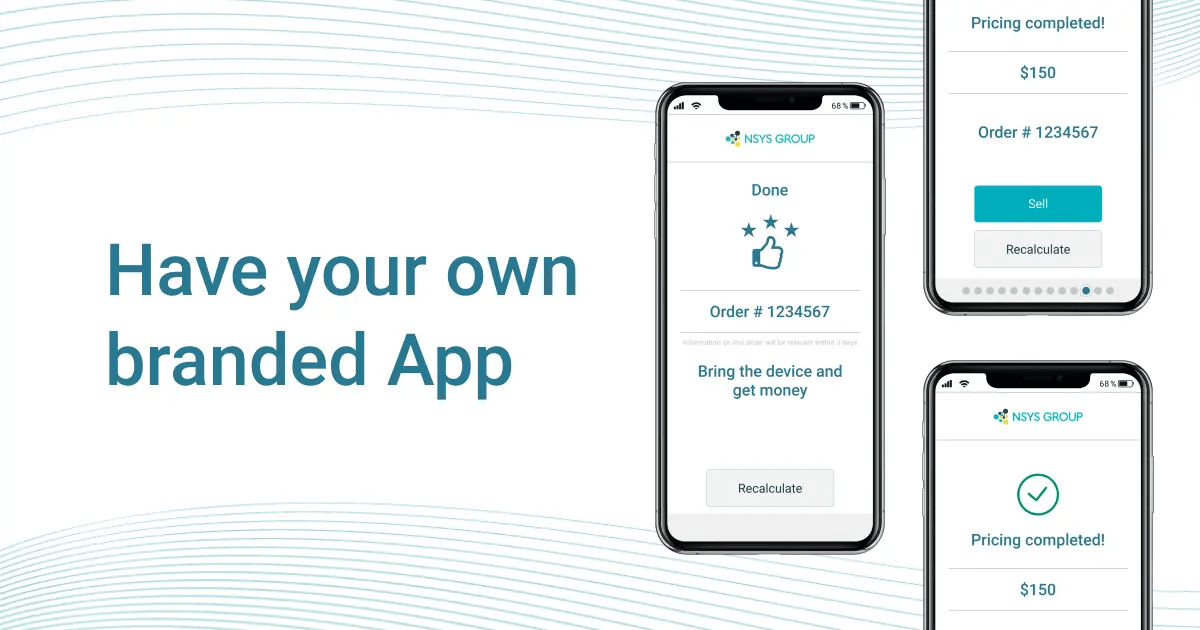Recently Startup.info has interviewed our CEO Gregory Glazman about the history of our company providing software solutions for companies operating with pre-owned mobile phones and what difficulties we faced during the Covid-19 time. Today we are sharing the whole interview published on the Startup.info website.
First of all, how are you and your family doing in these COVID-19 times?
Gregory Glazman:
2020 was a difficult year for all of us. My family and I are no exception. We had to change our plans and habits. One of the biggest problems in my family was to minimize contacts between my children and my parents – to protect the older generation from the possibility of being infected by COVID-19. I couldn’t limit my work contacts too much, and my children had to go to school and other classes. That’s why we posed a threat to my parents. Despite the fact that we lost the battle with the virus and my family eventually got over it, although in a mild form, we prevented the main thing – we did not infect our older generation.
Tell us about you, your career, how you founded NSYS Group.
Gregory Glazman:
I am a serial entrepreneur. At the age of 39, I have been engaged in business for more than 20 years. During this time, I have implemented many projects, some of them were successful, and others were not. My experience is very diverse, from logistics and car sales to establishing online stores, building a large retail network of mobile phone stores, and so on. Finally, I found myself in the IT industry, and I don’t want to change it for anything else.
NSYS Group, originally named Neva Systems, was founded by me 4 years ago. Within this short period, we have evolved from a small unknown startup to a global company with clients in more than 50 countries, from New Zealand to Hawaii. Now the company consists of around 60 members who create, maintain and develop the most advanced technological solution on our market.
How does NSYS Group innovate?
Gregory Glazman:
We are creating an ecosystem that has no analogs on the market, which allows us to fully automate the processes of companies operating with mobile devices. These are distributors, retailers, wholesalers, repair centers, mobile operators, recyclers, and others. I can’t tell you everything, as some of the products are under development and are not subject to disclosure before entering the market. But I can describe the existing products. These are solutions for automatic diagnostics, safe and fast data erasure from mobile devices, evaluating them in accordance with their cosmetic and technical condition, working with returns and maintaining warehouse records.
Our solution also helps our clients to build more open and trusting relationships with their customers, partners and suppliers. In case any device failed to pass our test, nobody can change these results. So, we contribute to the refurbished smartphone market, where every purchase shouldn’t be a disappointment for all sides, both supplier and buyer.
How the coronavirus pandemic affects your business, and how are you coping?
Gregory Glazman:
Of course we suffered a lot, as we could not maintain our business as usual. And because many of our clients suffered too, some of them even had to close their businesses. In the spring, our customers significantly reduced the volume of services consumed, many of them were closed temporarily or permanently. New potential customers often weren’t ready to negotiate a contract due to their businesses being at high risk and unpredictable market situations in general. All exhibitions and offline-conferences were canceled, and in some cases, we haven’t received any refund of the costs that we covered in advance. It was a big blow for us. These amounts were not small, and the role of exhibitions in our lives was very significant. During 2017-2019 we participated in dozens of international exhibitions as exhibitors, such as Cebit, IFA, CES, Gitex, MWC and others. It was very difficult to imagine 1 year ago that we could work without these events at all. But we’ve managed, and 2020 even became the most successful year in our history.
We paid great attention to developing new products, like trips to exhibitions did not distract us from the development. We have saved a lot of money on offline marketing in order to develop online marketing extremely quickly. We doubled the number of our employees in 2020 instead of cutting jobs, which is what many companies were doing. We have changed the priority in finding and building relationships with new customers in favor of those companies that trade online. We were even able to raise the salaries of most employees.
Every month in 2020, we achieved greater results than in the same month in 2019, even in the most difficult times in the spring of 2020. And despite such a high rate of growth in the number of employees, we were even able to finish 2020 at a profit.
Did you have to make difficult choices, and what are the lessons learned?
Gregory Glazman:
Of course, I had to make such choices. Business is always full of difficult choices, and in times of crisis, even more so. That was a difficult choice – to continue working from the office having all measures to protect people from being infected or to work from home. I offered my team to make a choice, and almost all of us chose to work from the office, and I appreciate this decision. We spent a lot on different measures, including paying a taxi for all the team every day for several months, but we became closer to each other in this difficult situation. People saw that the company cared about them. And we were able to hire and train a large number of new talented employees. We wouldn’t be able to do this by working remotely. We would not be able to maintain and develop the united spirit of our team at such a high level. With all the means of communication, people would still be divided.
As for lessons – that wasn’t my first experience of doing business in a crisis. I’ve managed to overcome no less than three crises in the past. But it was the first time when I could get advantages in doing business in a crisis and made my business even more successful than before.
What specific tools, software and management skills are you using to navigate this crisis?
Gregory Glazman:
As we have always worked with companies from many countries from 5 continents, We have always used some tools to communicate with our clients, such as GoToMeeting, IP telephony and others. We have implemented YouTrack in our development, and it has become more transparent for all the members involved. As for skills – I think composure and confidence were the best recipes.
Who are your competitors? And how do you plan to stay in the game?
Gregory Glazman:
We respect our competitors very much. We have a common goal of developing this industry to provide people with the most reliable and qualified refurbished and used phones. I am sure that we are going our own way, creating a new type of ecosystem with no analogs on the market, so I am not afraid of competition. In addition to the technological advantages, our company provides the best service on the market and communicates with customers in many languages.
Your final thoughts?
Gregory Glazman:
I think that only in times of crisis and challenges can we determine who is truly an entrepreneur and whose success is not accidental. Crisis hits people’s pockets and nerves, but it heals the economy by removing weak, failed players. A business person must be able to find a way out of any situation and, if possible, benefit from difficulties.






